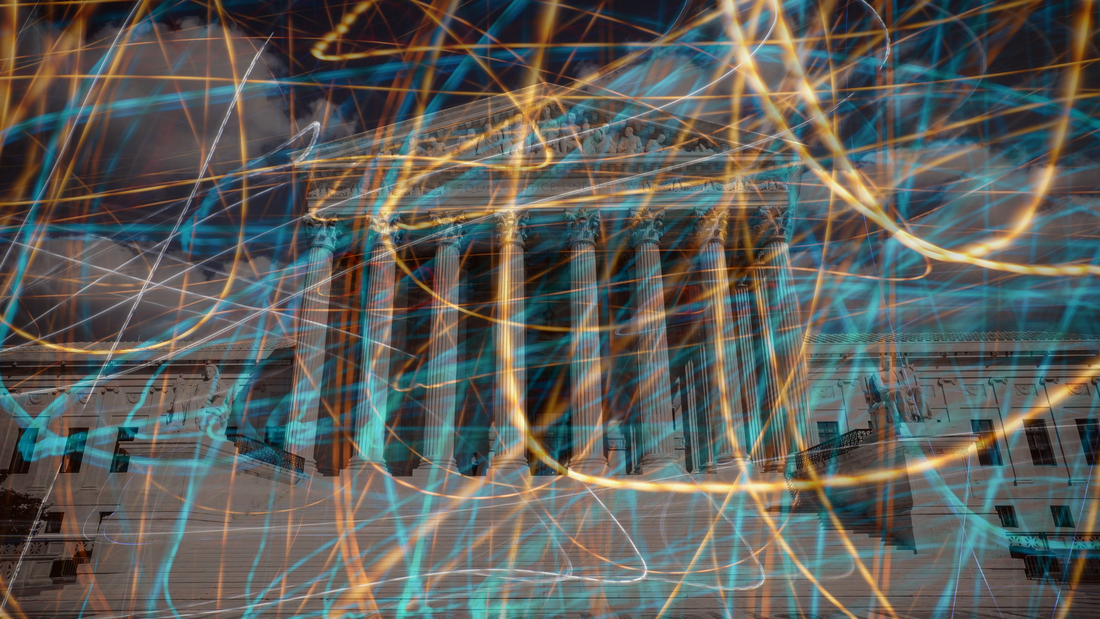|
Jeff Kosseff, associate professor of cybersecurity law at the U.S. Naval Academy, titled his acclaimed book about Section 230, The Twenty-Six Words that Created the Internet. Those exact words:
No provider or user of an interactive computer service shall be treated as the publisher or speaker of any information provided by another information content provider. Kosseff did not exaggerate. This statute, part of the Communications Decency Act of 1996, protects platforms and websites from any liability contained in third-party posts. Section 230 not only protects Facebook or Twitter (now X) from being sued for libelous posts made by its users, it also protects myriad web-based businesses – from Angi (formerly Angie’s List), to Rate My Professors, to a thousand sites that run reviews of hotels, restaurants, and businesses of all sorts. Without Section 230, a wide swath of U.S. digital commerce would cease to exist overnight. And yet, Justice Clarence Thomas hit a nerve in 2021 when he mused in an opinion that the “right to cut off speech lies most powerfully in the hands of private digital platforms. The extent to which that power matters for purposes of the First Amendment and the extent to which that power could lawfully be modified raise interesting and important questions.” Such questions certainly seemed interesting to lawmakers in Florida and Texas. Texas passed a law that bars companies from removing posts based on a poster’s political ideology. This law was upheld last year by the Fifth Circuit. The Florida law, which would prohibit social media from removing the posts of political candidates, was stricken last year by the Eleventh Circuit. At the time, we wrote that: Cert bait doesn’t get more appealing than this. Consider: A split between federal circuits. Laws that would protect free expression in the marketplace of ideas while simultaneously curtailing the speech rights of unpopular companies. Two similar laws with differences governing the moderation of political speech. The petition for SCOTUS reviewing the Texas and Florida laws practically writes itself. The First Amendment is aimed only at the government. It protects the editorial decisions of social media companies while forbidding government control of speech. But being kicked off X, Facebook, Google, and Amazon would certainly feel like being censored. And there may well be First Amendment implications whenever federal agencies are secretly involved in content management decisions. But if Section 230 is overthrown, what will replace it? In the face of the current circuit split, legal principles get tangled up like fishing lines on a tourist boat. As Kosseff notes in Wired, Americans living under the Fifth Circuit may see drastic alteration of the regulation of internet companies. In the Eleventh Circuit, Section 230 prevails as it is. The resulting confusion is why it is likely the Supreme Court will have to take up a challenge from NetChoice, which represents tech companies. If the Court doesn’t cut this Gordian knot, we could wind up with a Red State internet and a Blue State internet. While the judiciary sorts out its thinking, Congress should act. Protect The 1st continues to press policymakers to look at principles similar to those of the bipartisan Platform Accountability and Consumer Transparency Act, which would require big social media companies to offer clear standards and due process for those who post in exchange for the liability protections of Section 230. Comments are closed.
|
Archives
June 2024
Categories
All
|
ABOUT |
ISSUES |
TAKE ACTION |



 RSS Feed
RSS Feed